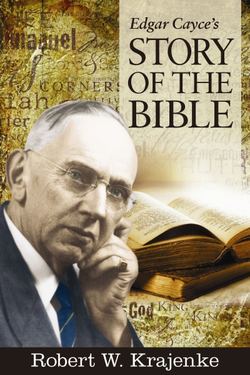Читать книгу Edgar Cayce's Story of the Bible - Robert W. Krajenke - Страница 74
На сайте Литреса книга снята с продажи.
A Discussion
ОглавлениеThe Bible records a dialogue between Moses and God:
And Moses said to the Lord, “I beseech thee, O, My Lord, I am not eloquent, neither heretofore nor since thou hast spoken to thy servant; for I am a stutterer and slow of speech.”
The Lord said to him, “Who has made man’s mouth? or who makes the dumb, Or the deaf, or the seeing, or the blind? Is it not I, the Lord?
Now therefore go, and I will be with you, mouth and teach what you shall speak.” And Moses said to him, “O, My Lord, send I beseech thee, by the hand of whomsoever thou wilt send.”
And the anger of the Lord kindled against Moses, and he said to him, “Behold Aaron, your brother, the Levite. I know that he is a good speaker, and also behold, he will come forth to meet you, and when he sees you, he will be glad in his heart.
And you shall speak to him and put my words in his mouth; and I will be with your mouth and with his mouth, and will teach you what you shall do.” (Exodus 4:10-15)
Actually, these issues, such as the power of God, Moses’ limitations, and Aaron’s usefulness, could have been debated by Moses and his kinsmen. The following was given to a middle–aged Lutheran minister:
Before that, we find the entity was in the land of the high hill, but much different than is presented by the name alone in the present. For the entity was among those who aided, studied, disputed with Moses when he had had his vision that he must return to Egypt for the relieving of the pressure upon the chosen people. Not because of any particular thing, save their desire, their search, their one ideal in the fact of a living God that might be touched with the infirmities of the human experience.
5159-2
In another reading, Cayce says Moses was “slow to comprehend” (5276-1) the message of the burning bush. However, through the convictions brought about during that vision and from the understanding derived from study and debate with his kinsmen, Moses was ready to commit his purpose into action. Willing as his spirit was, he applied it with misunderstanding.
When there had been fulfilled that preparation, or a part preparation of material knowledge of Moses, he set about to put into activity that purpose for which he had come into the earth. Yet materially he chose an error, a sin, in establishing the righteousness of his fellow men. Thus a full period was required—as of earthly righteousness or earthly knowledge—to undo or to coordinate that [which] was to be a working principle of righteousness versus sin. Then he was called; as was Paul in his persecution of the church, conscious of a purpose but active, doing something toward an activity which by education to him (physically) was correct, yet sin.
He, too, was called and directed. So, too, may each individual be active in principle, in purpose, being sincere, being direct. Thus may the individual gain the greater working knowledge of that which is righteous, versus that which is sin.
Then, let each be not slothful, not putting off, not unmindful that ye must be up and doing, working, BUSY at that which is to thee, now, today, that as thy conscience directs thee to do; in sincere, direct manner. And ye may be sure He counts that try as righteousness; and the sin that may appear to self or to others is but upon the reverse—which is righteousness.
262-126
Once we realize we have a purpose, or a “calling,” we should not let fear or ignorance hold us back. If we begin to apply what we know we are supposed to do, guidance, direction, and further enlightenment will follow. Using Moses as an illustration, Cayce points to this spiritual law in the following:
(Q) In what way may I best attain my ideal?
(A) In the applying of self day by day in every way, that thou knowest, that makes a personal application of that thou knowest to do, without questioning of the morrow; for the morrow has its evils and its goods, sufficient unto self. Today is! Use that thou hast in hand. So does the awakening come. Even as called by God to lead a people, as was Moses, a shepherd, and the flocks in Moab. Use what thou hast in hand, for the ground whereon thou standest is holy! Do thou likewise!
262-13
Perhaps, instead of establishing a concept of racial superiority, the more spiritually correct attitude would have been an expression of universal brotherhood in which no race or special group was favored, as is seen in the following:
